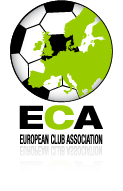Geneva (CH) – Representatives from 136 member clubs attended the European Club Association’s 6th General Assembly in Geneva
Clubs seek greater role in decision-making process
Following recent discussions and speculation relating to possible significant changes to the international calendar, such as a “Winter” World Cup, the European Club Association (ECA) would like to express its concern on the way matters of such importance are managed by football’s world governing body and underline its opposition to such a disruption.
ECA primarily questions the way FIFA reaches decisions heavily affecting club football without the involvement of the stakeholders concerned and believes that modern football needs democracy, transparency and certainty of rules.
ECA is supportive of national team football but also believes that player’s exhaustion through an excessive number of games must be addressed as a top priority. Currently, this is not the case. At present, following a long and exhausting World Cup tournament, national team players are called up again at the start of their preparation for the new season to play friendly matches with their national team purely for commercial reasons.
ECA would like to recall that in 2004 the European clubs accepted to renounce to a Champions League with two group stages thus reducing the match dates from 17 to 13 to allow for more rest for players.
In October 2010, we found out via a FIFA Circular Letter, that the FIFA Executive Committee had decided to add 8 dates (from 38 to 46, plus 20%) over the 2011-2014 period to the international match calendar without any precise reason and without any consultation with the key stakeholders concerned, namely the European clubs. As a result, ECA is not prepared to accept the way this decision was reached.
Looking forward, we propose some new basic principles that we would like to see form part of the future international calendar:
Certainty of rules that cannot be changed in the course of the cycle.
A maximum of one international tournament per player per year to address the concerns we have relating to player’s exhaustion.
National team ‘periods’ as opposed to national team dates for official or friendly games
A period of at least 7 weeks without any national team activity following major international tournaments like the World Cup or the Confederation Tournaments.
The determination of “fixed slots” for the major confederation and international
national team tournaments.
Commenting on the discussions during the General Assembly, ECA Chairman Karl-Heinz Rummenigge stated:
“The time for monopolies is over. Football needs democracy and transparency. ECA Members all agree that clubs must be meaningfully involved in all decisions affecting club football. Now is the time for change”.
Extension of ECA Membership Cycle
The ECA Executive Board today proposed to the members to extend the current ECA Membership Cycle (2010-12) by one year, until the end of the season 2012/13. The reason for such proposal is to harmonise the ECA Cycle with the UEFA Committees’ Cycle, which would allow for consistency between the ECA Executive Board Cycle and ECA representation at UEFA Committees. The extension only applies to the current cycle. As from the season 2013/14, the ECA Membership Cycle will again cover 2 years as usual. The ECA Ordinary Members unanimously approved this change.
Dispute Resolution Procedures and ECA Mediation
As guest speakers, we were very happy to welcome FIFA’s Legal Director Marco Villiger and DRC judge Philippe Diallo who intervened on dispute resolution procedures.
Marco Villiger updated the ECA Members on the measures taken by FIFA in order to speed up procedures at the Dispute Resolution Chamber (DRC) and Players’ Status Committee, whereas Philippe Diallo gave practical insight into the role of the DRC looking back at 10 years of DRC history at FIFA. Furthermore, Marco Villiger presented ideas on an ECA Mediation Service, which in the future might deal with disputes between ECA Member Clubs. ECA is prepared to further cooperate with both FIFA and UEFA on this matter.
Refereeing matters
Furthermore, the ECA Member Clubs were pleased to welcome UEFA’s Chief Refereeing Officer, Pierluigi Collina. The former referee updated the clubs on the experiment with 5 referees currently being carried out in both UEFA Club Competitions.
Following his intervention, Pierluigi Collina stated:
“It has been a great opportunity for me to update the clubs on refereeing matters, but also to hear and understand the clubs’ views. The exchange of thoughts is very important in order to further develop and improve our refereeing system.”
Press contact:
Marc Schmidgall
Communication & Marketing Manager
European Club Association
Rte de St-Cergue 9
CH-1260 Nyon
E-Mail: marc.schmidgall@ecaeurope.com
Tel.: +41 (0)22 761 54 45
This press release was written and published free of charge by “European Club Association”
